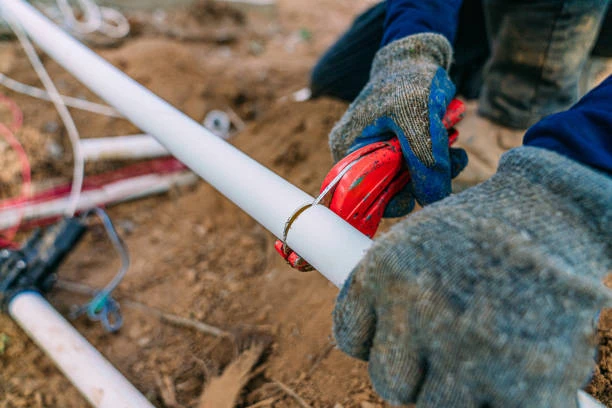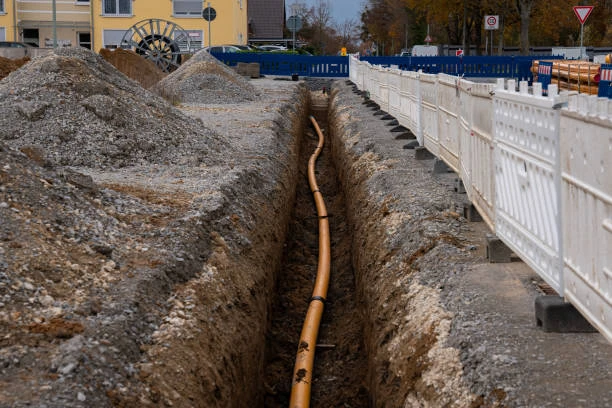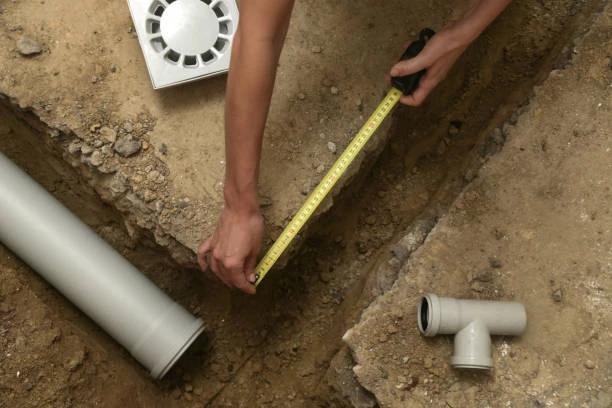In recent news, a significant lawsuit has emerge alleging price fixing among major manufacturers of PVC (Polyvinyl Chloride) pipe. This legal action has raised eyebrows across the construction and plumbing industries. Particularly affecting the market for CPVC (Chlorinated Polyvinyl Chloride) fittings. In this article, we will explore the implications of this lawsuit, its potential impact on pricing, and the advantages of using CPVC fittings in various applications.
Understanding the Allegations
The lawsuit, filed by a coalition of contractors and businesses, claims that several leading manufacturers engaged in collusion to artificially inflate prices for PVC pipe products. This alleged conspiracy not only affects traditional pipes but also extends to related products like CPVC fittings, which are widely use in residential and commercial plumbing systems.
Price fixing is a serious antitrust violation that can lead to inflated costs for consumers, stifled competition, and restricted market entry for smaller players. As the lawsuit unfolds, industry professionals are closely monitoring how these allegations will impact pricing structures and market dynamics in the piping sector.
The Impact on PVC Fittings
CPVC fittings, known for their durability and high temperature resistance, are critical components in many plumbing systems. Should the lawsuit result in penalties or changes in business practices for the accused manufacturers, the repercussions could be felt throughout the entire supply chain.
1. Pricing Pressure
If the court rules against the manufacturers involved in the price-fixing scandal and it could lead to a reevaluation of pricing strategies across the board. This might result in lower prices for CPVC fittings, benefiting consumers and contractors. Conversely and if the manufacturers are able to maintain their pricing power, the cost savings associated with CPVC fittings may diminish.
2. Supply Chain Disruptions
A protracted legal battle could disrupt supply chains as manufacturers reassess their strategies and relationships. Contractors relying on CPVC fittings for ongoing projects may face delays or shortages, which could hinder project timelines and increase costs.

Advantages of CPVC Fittings
Despite the ongoing lawsuit and its potential implications for the piping industry. It’s essential to highlight the numerous advantages of PVC fittings that make them a preferred choice among builders and plumbers.
1. Corrosion Resistance
One of the standout features of PVC fittings is their resistance to corrosion. Unlike metal pipes that can rust over time. CPVC fittings maintain their integrity even when exposed to harsh chemicals and environmental conditions. This property ensures a longer lifespan for plumbing systems, reducing the need for frequent replacements.
2. High Temperature Tolerance
PVC fittings can handle temperatures up to 200°F (93°C), making them ideal for hot water applications. In residential plumbing, where hot water lines are common, this capability enhances the reliability and safety of the entire system.
3. Ease of Installation
The lightweight nature of PVC fittings simplifies the installation process. They can be join using solvent cement, eliminating the need for welding or specialized tools. This ease of installation not only saves time but also reduces labor costs, benefiting contractors and homeowners alike.
4. Cost-Effectiveness
Although the initial cost of CPVC fittings may be slightly higher compare to some traditional materials. Their durability and low maintenance requirements translate into significant long-term savings. Homeowners and contractors can expect fewer repairs and replacements, making CPVC a wise investment.
5. Environmental Considerations
PVC is safe for transporting potable water and does not leach harmful chemicals into the water supply.
6. Sound Dampening Qualities
PVC fittings offer sound-dampening characteristics, which help minimize noise produced by water flow. This feature is particularly beneficial in residential settings where noise reduction is a priority.
Conclusion
As the lawsuit alleging price fixing on pipe progresses, its implications for the CPVC fittings market remain to be see. While the legal outcomes could potentially lead to changes in pricing and supply chain dynamics. The inherent advantages of PVC fittings continue to make them a reliable choice for contractors and homeowners.
Ultimately, the plumbing industry must navigate these challenges while considering the long-term benefits of using PVC fittings in their projects.

FAQ
1. What are CPVC fittings?
CPVC fittings are plumbing components made from chlorinated polyvinyl chloride, known for their durability, high-temperature tolerance, and resistance to corrosion.
2. Why should I choose CPVC fittings over other materials?
CPVC fittings offer several advantages, including corrosion resistance, ease of installation, and cost-effectiveness, making them a reliable choice for plumbing systems.
3. Can CPVC fittings be used for hot water applications?
Yes, CPVC fittings can withstand temperatures up to 200°F (93°C), making them suitable for hot water plumbing systems.
4. How do I install CPVC fittings?
CPVC fittings can be easily install using solvent cement, requiring minimal tools and expertise compared to traditional piping methods.
5. Are CPVC fittings environmentally friendly?
Yes, CPVC fittings are safe for transporting potable water and are often produce using sustainable practices, making them an environmentally friendly option in plumbing.
More Detailed Questions
What are some potential effects on consumers and industries due to the alleged Pvc pipe price-fixing?
Due to Alleged PVC Pipe Price-Fixing
The alleged manipulation of PVC pipe prices can have significant ripple effects across various sectors. For consumers, this could mean elevated costs for goods and services as companies pass on the increased expenses.
Industries such as construction, utility services, and telecommunications might face tighter budgets and diminished profitability. Construction companies may need to absorb higher material costs which can lead to increased prices for residential and commercial projects.
Furthermore
Electricians and other related trades could see a rise in operational costs, impacting their bottom line. Utilities and municipalities might struggle with budget constraints, potentially affecting infrastructure projects or maintenance schedules. Furthermore, industrial and manufacturing plants could experience reduced competitiveness due to inflated production costs.
Overall, the alleged price-fixing could inflate expenses beyond a fair market level, potentially imposing a multi-billion dollar impact on industries and end-users alike.
How have the alleged actions of the defendants affected PVC pipe prices since 2021?
Since early 2021, the defendants are accused of manipulating the market by agreeing to set the price of PVC pipes in the U.S. This alleged price-fixing strategy led to a dramatic 250% increase in PVC pipe prices between January 2021 and mid-2022. In contrast, the cost of PVC resin, a key component of the pipes, only rose by 50% in the same timeframe. Although resin prices began to decline towards the end of 2022, the prices of PVC pipes have remained significantly high. This suggests that the defendants’ actions have contributed to sustained elevated pricing, disconnecting the pipes’ costs from the natural fluctuations in resin prices.
How has the PVC pipe market changed in terms of consolidation over the past decade?
Over the past decade, the PVC pipe market has undergone significant consolidation. This transformation is largely attributed to a series of strategic acquisitions that have been meticulously coordinated. As a result, the market has become dominated by a limited number of major distributors. This concentration of control suggests that these few players now wield substantial influence over the market dynamics in the United States.
What role does the Oil Price Information Service (OPlS) play in the alleged PVC pipe price-fixing conspiracy?
To Begin With
The Oil Price Information Service (OPIS) is at the heart of the alleged price-fixing scheme concerning PVC pipes, according to a proposed class action lawsuit. OPIS produces a report called the ProtoChem Wire PVC & Pipe Weekly, which is a key tool in this controversy.
The lawsuit claims that OPIS has formed a ‘close-knit, two-way relationship’ with major industry players. This involves a steady exchange of daily information such as prices, projections, and transaction details provided by converters and distributors. In return, OPIS supplies these companies with crucial reports containing pricing benchmarks that these firms rely on to determine their own pricing strategies.
Furthermore
The legal filing further alleges that OPIS maintains constant communication with the companies involved, acting much like an intermediary. This close interaction purportedly helps these companies coordinate in ways that push the limits set by antitrust laws.
Since January 2021, converters are accused of using OPIS to help create a pricing agreement, driving up the cost of PVC pipes significantly in comparison to the raw PVC resin prices. Between early 2021 and mid-2022, the price of PVC pipes surged by almost 250%, while the resin only saw a 50% rise, highlighting the alleged impact of this conspiracy.
Which companies are named as defendants in the PVC pipe price-fixing lawsuit?
In the PVC pipe price-fixing lawsuit, multiple companies are listed as defendants. These include:
- Atkore Inc.
- Cantex Inc.
- Diamond Plastics Corporation
- IPEX USA LLC
- Jet Stream, Inc.
- JM Eagle
- National Pipe & Plastics, Inc.
- Oil Price Information Service
- Otter Tail Corporation
- Prime Conduit, Inc.
- Sanderson Pipe Corporation
- Southern Pipe & Supply Company, Inc.
- Westlake Corporation
These firms are accused of being involved in a scheme affecting the pricing of PVC pipes.
Who does the class action lawsuit seek to represent?
The class action lawsuit aims to represent anyone, including businesses, located in the United States and its territories, who purchased PVC pipe starting from January 1, 2021. This representation continues until the alleged anticompetitive actions of the defendants cease.
What is the Wrobbel v. Atkore Inc. Et al. Class action lawsuit about?
The core issue in the Wrobbel v. Atkore Inc. et al. Class action revolves around allegations that several companies have unlawfully colluded to control the pricing of finished PVC pipes in the United States. The lawsuit claims that, starting in 2021, these companies engaged in practices to manipulate and artificially increase the prices consumers pay for these essential construction materials.
Key Allegations:
- Price Manipulation: Companies are accused of inflating prices, affecting the market for PVC pipes nationwide.
- Collusion: There is an allegation of a conspiracy among multiple firms to fix or interfere with the ordinary market pricing mechanisms for these products.
Impact on Consumers:
If true, these practices may have led to higher costs for businesses and consumers who rely on PVC pipes for construction and infrastructure projects. This lawsuit seeks to address whether these companies violated antitrust laws by restricting fair competition in the market.
What This Means
The resolution of this case could potentially impact how PVC pipe prices are regulated and what consumers might expect in terms of market fairness moving forward. The outcome could also set a precedent for how similar conspiracies are addressed legally in the future.
In which state was the PVC pipe class action lawsuit filed?
The PVC pipe class action lawsuit was filed in the state of Illinois.
What laws are the defendants accused of violating in the PVC pipe lawsuit?
Price fixing is a serious antitrust violation that can lead to inflated costs for consumers, stifled competition, and restricted market entry for smaller players. In the case of the PVC pipe lawsuit, the defendants are accused of violating key federal statutes, including the Sherman Antitrust Act and the Racketeer Influenced and Corrupt Organizations Act (RICO).
Furthermore
These laws are designed to maintain fair competition and prevent practices that harm the marketplace. The Sherman Antitrust Act specifically targets anti-competitive behaviors such as price fixing and monopolistic practices, while RICO addresses broader patterns of racketeering activity, which can include fraud and collusion.
By understanding these legal frameworks, it becomes clear how the alleged actions disrupt market dynamics, ultimately affecting consumers and smaller businesses struggling to compete in a skewed playing field.


















